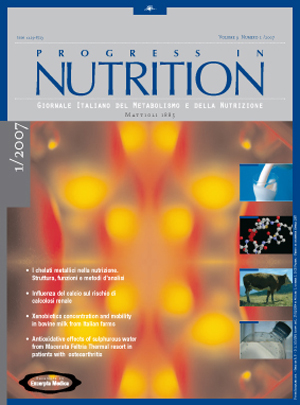The influence of calcium on renal stone disease
Keywords:
Calcium stone disease, calcium, diet, metabolic alterations, hypocitraturiaAbstract
Calcium nephrolithiasis is a very common disease. Kidney stones are mainly composed of calcium salts (calcium-oxalate and calcium phosphate). Due to this it is still suggested to stone forming patients to reduce their calcium intake, even though prospective studies did not support this statement. Other factors than calcium are involved in renal stone pathogenesis. Some genetic patterns are strongly suspected to correlate with nephrolithiasis, while metabolic alterations (such as low fluid intake, high protein, salt and vitamin C intake, hypocitraturia, obesity) are recognized causes of this disease. In conclusion this short review will show how the correction of metabolic alterations can reduce stone risk and it will also explain that a normal intake of calcium and vitamin D does not increase nephrolithiasis incidence, both in normal people and in stone formers. More attention must be put in those patients eating a very high calcium diet or in stone formers taking calcium-salts supplements.Downloads
Published
Issue
Section
License
This is an Open Access article distributed under the terms of the Creative Commons Attribution License (https://creativecommons.org/licenses/by-nc/4.0) which permits unrestricted use, distribution, and reproduction in any medium, provided the original work is properly cited.
Transfer of Copyright and Permission to Reproduce Parts of Published Papers.
Authors retain the copyright for their published work. No formal permission will be required to reproduce parts (tables or illustrations) of published papers, provided the source is quoted appropriately and reproduction has no commercial intent. Reproductions with commercial intent will require written permission and payment of royalties.

This work is licensed under a Creative Commons Attribution-NonCommercial 4.0 International License.


